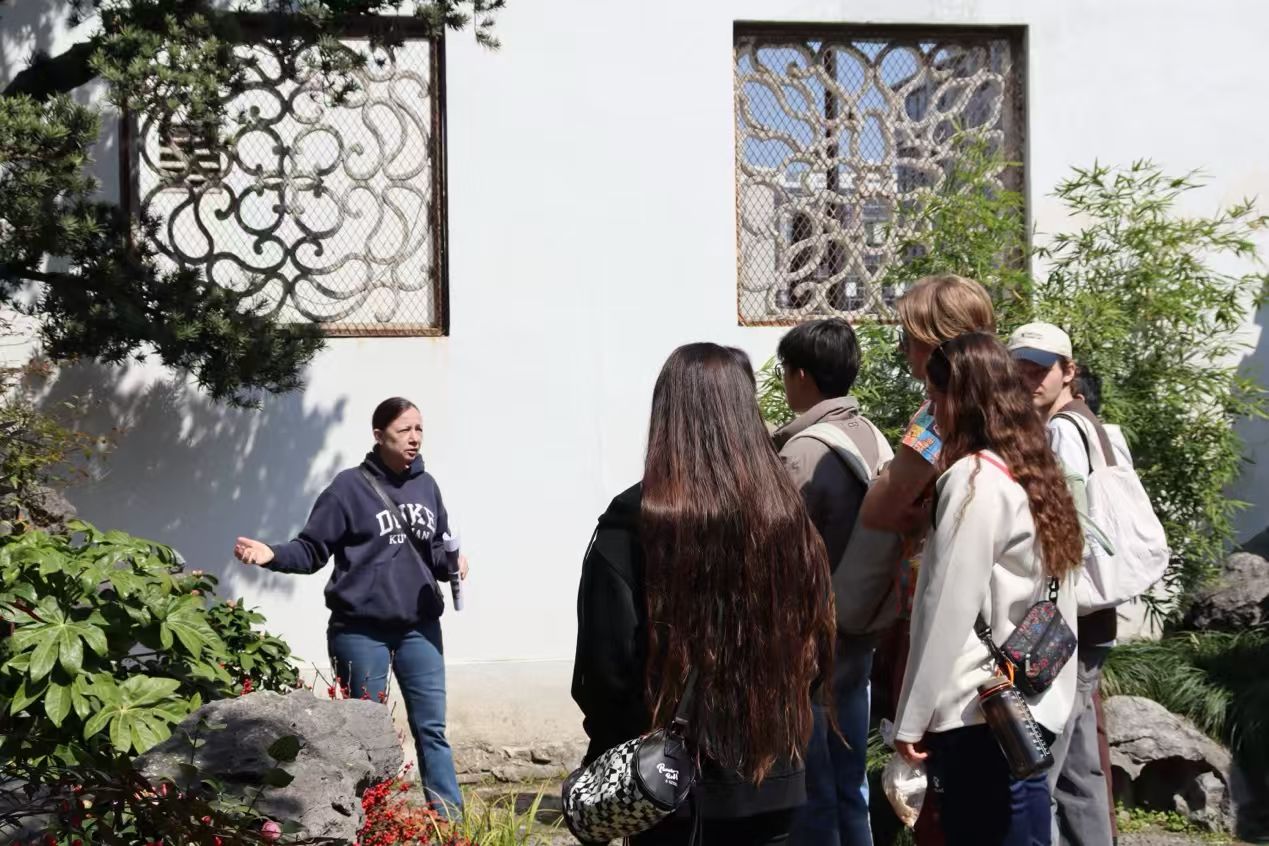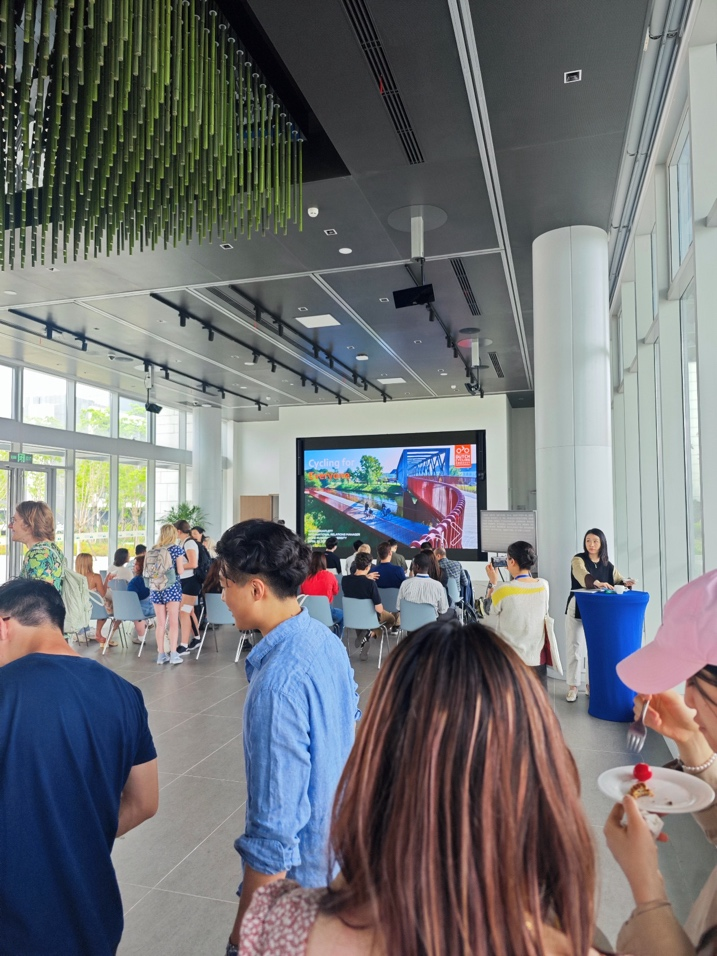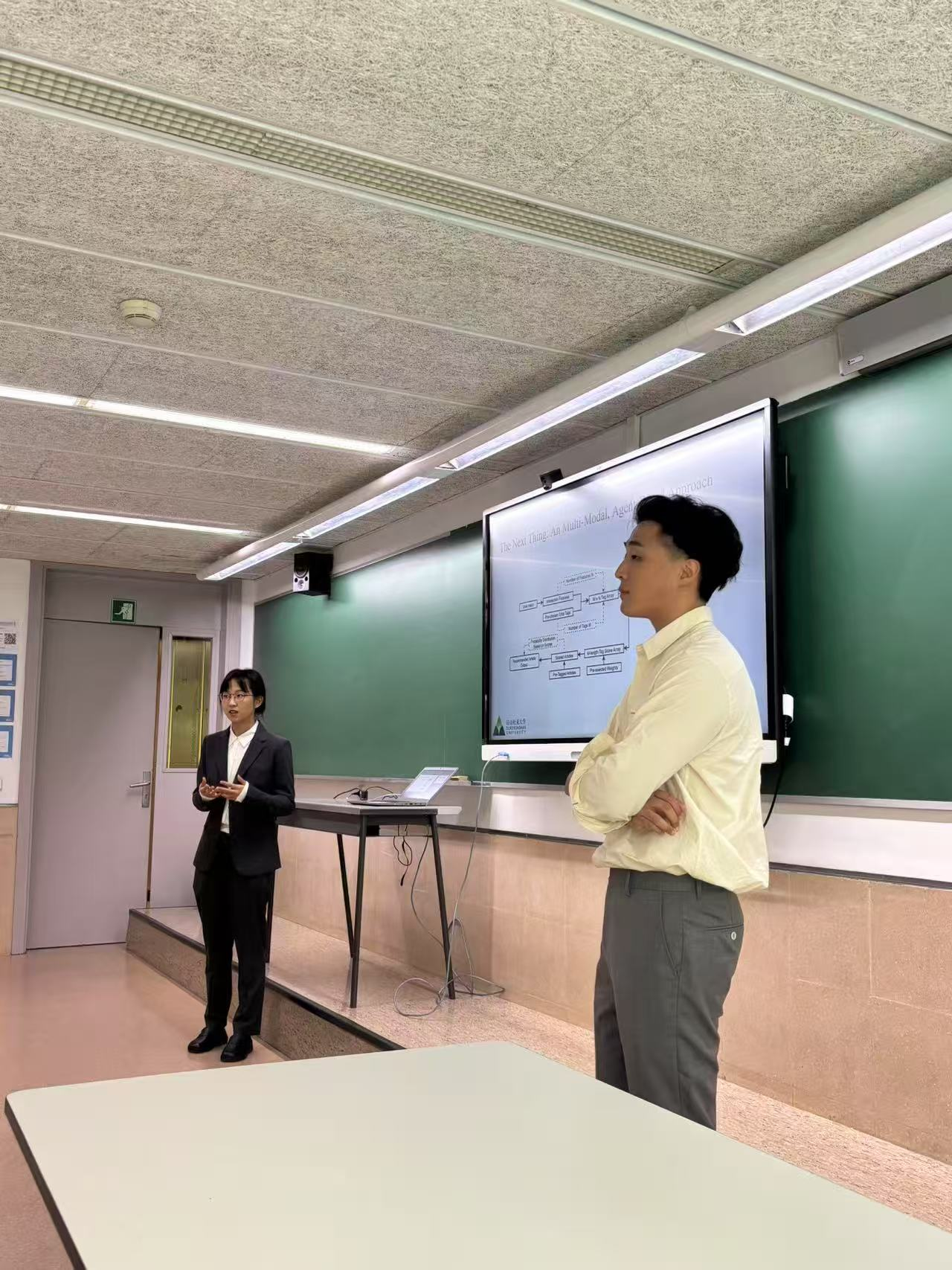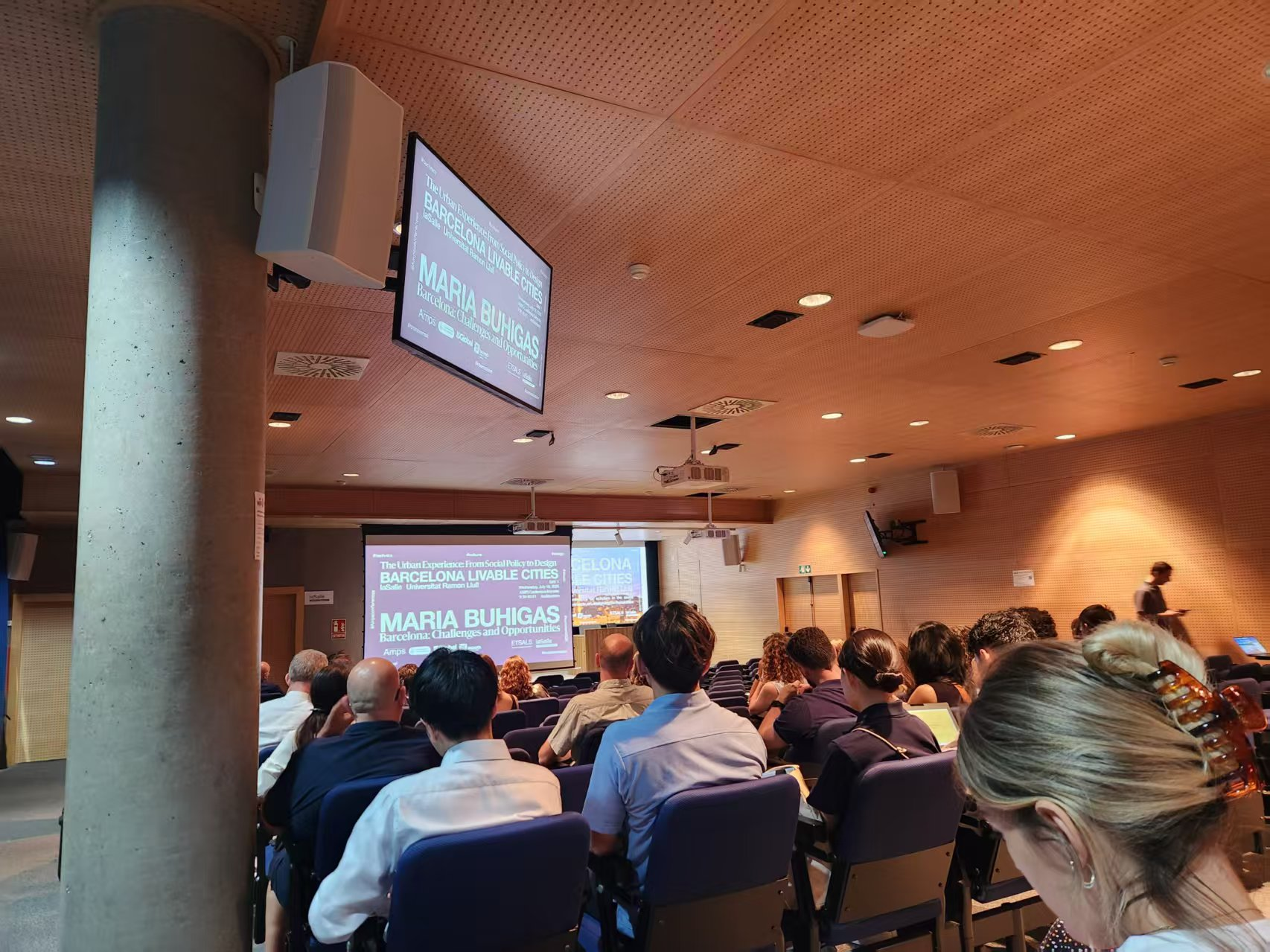When a class goes beyond books and projectors to bridge communities and continents, it becomes something more than a classroom. That’s the idea behind “Urban Informatics and Sustainable Design,” a new interdisciplinary course at Duke Kunshan University that merges data science, ecology and design to reimagine how cities can thrive.
Co-taught by Charles Chang, assistant professor of environmental and urban studies, and Renee Richer, associate professor of biology, the course brings together students from across disciplines to explore how cities can be healthier, more resilient, and more human-centered.
“The urban environment will soon support 80% of the global population,” Richer said. “We need to think about how to make the urban environment more resilient and support human health and well-being through intentional design. Our goal is to support students’ understanding of urban environmental studies and design while teaching them the tools to practice their new skills.”
Reflecting on the tension between human creativity and environmental impact, Chang framed the question at the heart of the course.
“Humans show almost a wanton desire to smash and crush that is tied to our imagination and our urge to make: eggs broken to make an omelet, forests cleared to make houses, the earth disemboweled to raise architectural monuments, and so on,” he said. “Yet one might ask: can this same desire also serve the environment’s good?”
Integrating classroom learning with real-world practice
The course introduces students to urban informatics — digital tools for collecting, analyzing and visualizing urban environmental data — and challenges them to use these skills to solve real-world sustainability issues.
In the first half of the semester, students learn to gather and interpret environmental data. Later, they work in teams to design sustainability-focused projects based on real sites around the DKU campus. The course also includes community-based learning (CBL), encouraging students to step outside the classroom to engage with local residents and urban environments.

The class is supported by the DKU Community-Based Learning Fund, the Duke Climate and Sustainability Teaching (CAST) Fellows Program, and DKU’s Operations and Student Affairs teams.
Throughout the seven-week term, students attended lectures by professional designers, conducted field research in Suzhou’s classical gardens, and took part in DKU’s Sustainability Week Summit, where they exchanged ideas with experts and practitioners.

From data to design: Turning research into impact
In their final projects, students combined GIS technology with sustainability principles to address topics of their choice. Under Chang’s guidance, Yucen Xiao (Class of 2027) and Yuandong Zhang (Class of 2025) developed a WeChat mini program that tracks users’ carbon emissions and recommends low-carbon lifestyle tips based on their travel patterns.

To better understand community needs, the pair interviewed students, faculty and residents about their perceptions of carbon emissions and sustainable travel. Those conversations led them to refine their design, ensuring it reflected real behavior and local contexts.
“This project showed us that urban design isn’t just about data models,” Xiao said. “It’s about daily habits, community culture, and people’s emotions.”
From Kunshan to Barcelona: sharing research globally
After completing their prototype, Xiao and Zhang trained a deep learning model using global mobility data to predict travel patterns and provide personalized feedback through the app. They later presented their work at the “Livable Cities 2025: Barcelona” conference hosted by Architecture Media Politics Society (AMPS).

Held in July, the conference gathered international experts to discuss urban sustainability topics such as housing affordability, public space design, climate adaptation, and community participation. Speakers included Maria Buhigas, chief architect for the Barcelona City Council, and Mark Nieuwenhuijsen, director of the Urban Planning, Environment and Health Initiative at the Barcelona Institute for Global Health (ISGlobal).

The students’ presentations and discussions with global researchers highlighted both the potential and challenges of applying urban informatics to real-world sustainability issues, expanding their understanding of low-carbon city design and international best practices.
The course demonstrates the power of blending disciplines to address complex urban challenges. By combining technology, ecological principles, and community engagement, students gain hands-on experience in designing cities that are not only smart but also sustainable, resilient, and human-centered.

